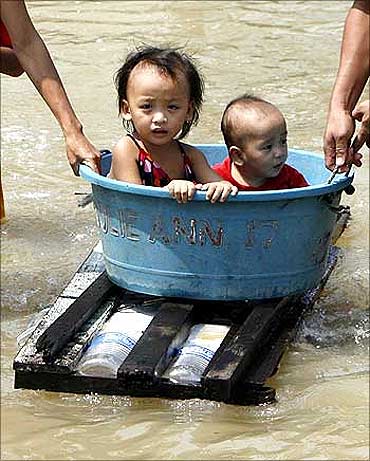
Climate change is today one of the biggest threats to humanity. Rising global temperatures would have a devastating effect on human health and the habitat.
If the current rate of increase in concentrations of greenhouse gases (GHG) continues, it will lead to a significant increase in global average annual temperatures.
As global temperatures rise, sea levels will rise, making coastal areas prone to storms, heavy rains and flooding.
The rise in temperatures will affect human health, life styles, food production, economic activity and migration patterns. It would lead to severe food and water shortages in the future, pushing millions into hunger and death.
Future generations will suffer the most due to famines, water shortages and extreme weather conditions.
Can you as an individual mitigate the risks of global warming? What changes can you bring about to make the earth greener? Yes, you can do small things and bring about big changes to make your planet live longer
Click NEXT to find out how you can save money and energy...making your planet greener and cleaner...
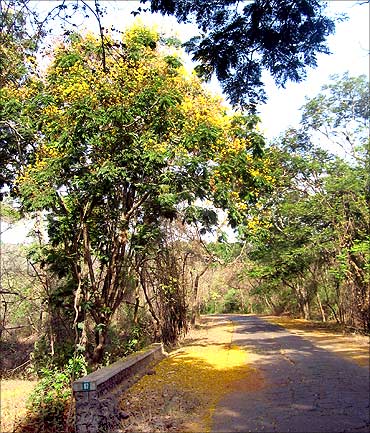
It's your duty to protect the planet which is facing a multitude of problems, thanks to the fast paced development.
Making a green world
Always remember to 'Re-use, Reduce and Recycle'. Always buy eco-friendly items.
Become a vegetarian: Being vegetarian can help save energy. It takes more energy to produce meat than to produce vegetables. It takes many units of crops to produce one unit of meat.A balanced vegetarian diet is healthier and cheaper. Avoid wastage of food and water. Take only what you can eat. You can always take a second helping.
Click on NEXT to read more...
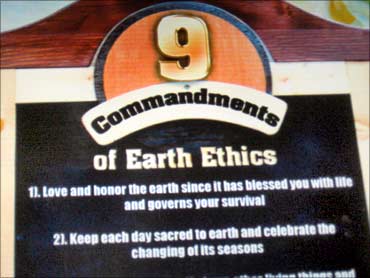
Disposing trash: Go for organic composting and recycling paper, bottles etc to cut down on gas emissions. When you recycle, less trash gets burned. So there will be a drop in greenhouse gases in the atmosphere.
Organic food: It is healthy and requires less energy to produce. Buy fresh food, frozen food uses 10 times more energy. Cover vessels while cooking: this can help save energy. Use pressure cookers more frequently to save energy.
Avoid littering. Always use dust-bins. Remember every action of yours counts. If each one of us decide not to throw waste in the open, our cities and towns will be much cleaner.
Avoid Polythene/paper bags. Go for re-usable bags. Carry bags with you so that you don't end up buying more plastic or paper bags.
Choose clean energy: Switch to clean, renewable sources of energy such as wind and solar wherever possible. Use human powered charging devices which save fuel.
Grow plants: Grow as many plants as possible. Make your environment green. Join groups that help in protecting forests and create awareness among people.
Packing: Buy stuff which do not take much packaging as it can cut garbage by about 10 per cent.
Click on NEXT to read more...

Do everything possible to save electricity. A unit saved at the your end saves 1.25 units of power generation. It further saves energy, as coal does not have to be transported.
Switch off the lights and fans whenever you do not need it. Besides, reducing your power bill, your usage will go a long way in cutting down the emissions that cause climate change.
Even if electronic devices are switched off, they use energy. So unplug these after use.
Refrigerators: Go for energy-efficient electrical appliances. New refrigerators use 40 per cent less energy than models made 10 years ago. Inefficient appliances waste energy, so its is better to invest in new products.
Avoid keeping the refrigerator near a place that has direct sunlight or next to the stove or dishwasher.
Click on NEXT to read more...
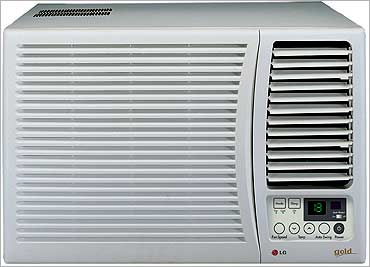
The filters in the cooling systems must be cleaned regularly to seal any leaks in central air-conditioning ducts. When you go out of the house and turn it off.
A tree or plant which can give shade to your air conditioner can improve its efficiency by up to 10 per cent.
Computer: When you are not using it, you can shut off the screen. About 60 per cent of the power used from a computer is used by the display screen. Avoid printing whenever possible.
Click on NEXT to read more...
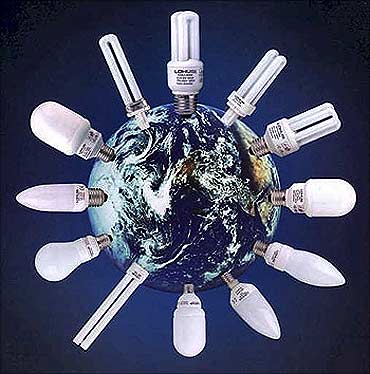
Lights: Use low energy consuming compact fluorescent lamps (CFLs). A 15-watt CFL can supply as much light as a 100 watt incandescent bulb. Switching to renewable resources of energy.
It may be expensive but it is safe and cost effective in the long run. With 50 million home water heaters we can save 95 billion units of electricity generation.
Click on NEXT to read more...
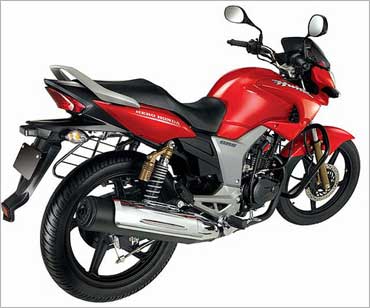
Saving fuel
Avoid using the car whenever you can. Driving your vehicle 55 mph can improve your mileage by about 15 per cent and cut emissions. For shorter distances use your bike than car.Go for regular engine checkups. A badly maintained engine consume up to 50 per cent more fuel than an engine in good condition.
Change the spark plugs regularly to keep engine's efficiency at an optimum level.
Under-inflated tires can increase fuel consumption by 5 per cent so you need to check air pressure once a week.
Do not stuff your car. A loaded roof rack will increase fuel consumption. The carrier should ideally be removed when not in use.
Click on NEXT to read more...
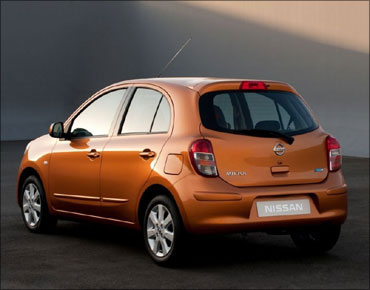
Try walking, taking a bus or carpooling whenever possible.
If you need to wait for more than 30 seconds, turn off the engine and start again. It will burn more fuel while idling than restarting it.
Start slowly, quick acceleration. Try to travel at a constant speed.
Keeping the windows wide open can lowers fuel efficiency.
Always use a good quality, energy-conserving oils in the car. Make sure the air filters are clean, they affect performance and economy.
Click on NEXT to read more...
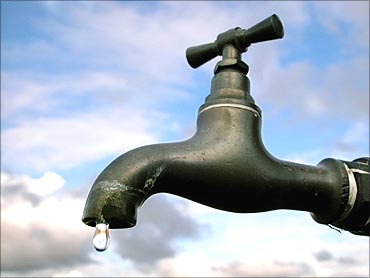
Saving water
Make sure taps are leakage free. A dripping tap wastes 30 drops of water per minute and 380 litres (84 gallons) per month. Turn the tap off when you brush your teeth or wash clothes.
Do not throw water on roads or elsewhere, it can be used to water your plants.
Create more awareness on water conservation and rainwater harvesting. Avoid flushing the toilets to dispose off the tissues etc, use the waste bin.
Wash fruits and vegetables in a vessel instead of running water from the tap.
A lot of water is wasted for the lawns. Water your lawn only when it is needed.
Click on NEXT to read more...
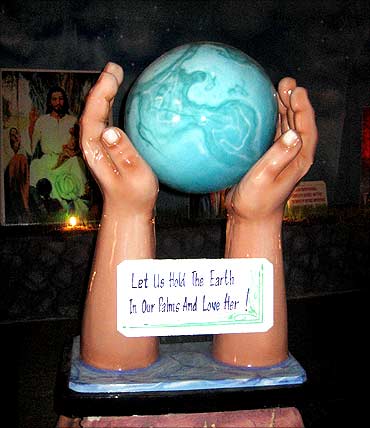
Do not leave the tap running while washing the dishes in the kitchen.
Install small shower heads to reduce the flow of water.
A layer of organic waste, hay around plants retains moisture and saves water. Collect the water you use for washing fruits and vegetables to water plants.
Click on NEXT to read more...
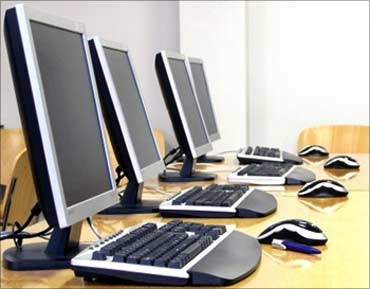
Turn off lights which are not in use. It would be good to remove fancy light that consume more power with compact, fluorescent lights. They also last longer.
Block too much of sunlight from entering the office during the summer. You can use blinds and curtains, to save on the air-conditioning system.
Set the computers to enter sleep mode when they are not used. Computers waste more energy by rebooting than in sleep mode.
An energy audit would help to further help you save more energy and money as well.
Recycle paper, do not print anything unless you really need to. Print on both sides of pages.